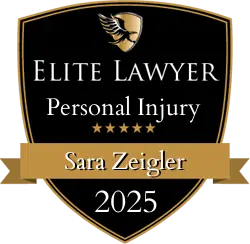If you receive a speeding ticket, there are a few things you can do in order to keep it off of your record. While you can’t always avoid getting a ticket, there are some steps you can take to make sure it doesn’t end up on your driving record. Please note, this is just advice.
1. Be Polite to the Officer
Interactions with law enforcement should always be conducted in a polite and respectful manner. Remember, the officer is performing their duty. Courteous behavior not only makes the situation more pleasant for both parties but could also positively influence the officer’s decisions regarding your situation.
2. Do Not be Defensive
While it’s natural to want to defend yourself when faced with a potential traffic violation, it’s important not to argue or appear aggressive. Instead, remain calm and composed. Lying or showing hostility could exacerbate the situation and reduce the likelihood of the officer showing leniency.
3. Do Ask for Forgiveness
Displaying sincerity and remorse can work in your favor. If you’ve made an honest mistake, acknowledging it could lead to a more sympathetic response from the officer. It’s essential, however, to do this without admitting guilt or volunteering unnecessary information.
4. Do Have a Clean Record
A clean driving record is a strong point in your favor. Officers are more inclined to show leniency to drivers who have demonstrated responsible behavior over time. If you have a history of safe driving, this could potentially turn a ticket into a warning.
5. Do Explain Your Situation
If there’s a legitimate reason for your infraction, such as a medical emergency, calmly explain it to the officer. They may show understanding and consider your circumstances when deciding on the appropriate action to take.
6. Do Use Your Words Wisely
When speaking to the officer, it’s crucial to choose your words carefully. Avoid statements that could be construed as admissions of guilt, excuses, or arguments. Remember, your statements can be used against you in a legal setting.
7. Do Not Volunteer Information
While honesty is important, refrain from offering unsolicited information or admitting fault. Answer the officer’s questions truthfully, but do not elaborate unnecessarily. It’s essential to balance transparency with protecting your rights.
8. Do Keep Your Hands Where the Officer Can See Them
This is important for both your safety and the officers. By keeping your hands in plain sight, the officer will feel more comfortable and be less likely to think you’re a threat.
9. Do Not Make Any Sudden Moves
This goes along with keeping your hands where the officer can see them. Any sudden movements could startle the officer and make them think you’re trying to escape.
10. Do Be Prepared to Go to Court
If you do end up getting a ticket, be prepared to go to court. This means knowing the date and time of your court appearance, bringing any relevant documentation, and dressing up more than you normally would.
Should I Hire a Lawyer?
You may be wondering if you should hire a lawyer if you get a traffic ticket. The answer to this question depends on a few things, such as the severity of the offense, your driving record, and the laws in your state.
In most cases, you won’t need to hire a lawyer for a minor traffic offense. However, if you’re facing more serious charges, it’s best to consult with an attorney.
Contact Us Today
If you’ve been charged with a traffic offense, don’t hesitate to contact us. We can help you understand the charges against you and what to expect going forward. Call us today at 304-842-4300 to schedule a consultation.









